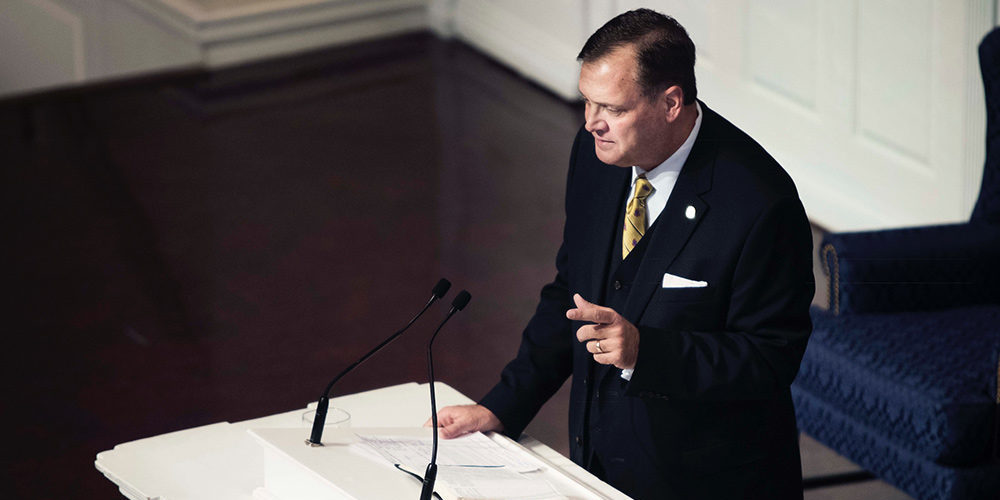
Law & Liberty carries my essay on Al Mohler’s religious nationalism as a challenge to the liberal social order that is at the heart of the American experiment. I addition to getting an OPC inside joke past the editors of a non-Presbyterian publication – I still can’t believe I did it! – I consider the problems involved in evangelical attempts to reverse the secularization of the West by means of a culture war:
I love Western civilization, for all its warts, and I give ground to nobody in my militancy for the historic evangelical positions on all these issues. The problem I see is twofold. In the short run, evangelical social activism that defines its agenda solely in terms that serve the political Right lacks the spiritual credibility it would need to stand as a real alternative to secularization, and Gathering Storm moves it in the wrong direction on this front. In the long run, evangelicals have not seriously confronted the hard theological questions that any Reconquista from secularization would demand, and Gathering Storm helps them avoid doing so.
Political liberalism, including the dechristianization of the civil law, is largely a product of Christian social reform – and not wrongheaded reforms, but theologically sound ones:
Many of Mohler’s readers will miss this, but his position entails a root-and-branch repudiation not only of the American experiment, but of a thousand years of Western Christian political thought. The political liberalism Mohler repudiates to save the Christian West is one of its most precious legacies. The doctors of the church began affirming as early as the 12th century that individual human rights are universal and are grounded in the design of our nature, and are therefore knowable independent of special revelation. If this were not the case, unbelievers could not be morally accountable for their actions, nor could we justify legitimate authority for non-ecclesial social institutions.
The stakes are high – for Mohler and for the Catholic integralists who end up in the same place Mohler does:
Mohler himself says that political liberalism is the whole basis of the American political order and the only historic framework for understanding freedom on both the American Right and Left. He ought to know that he is playing with fire. When he demands we rechristianize the civil laws, he owes us an account of why our Christian ancestors were wrong for almost a thousand years as they built Western civilization on a natural law tradition that culminated, and logically must culminate, in political liberalism. He owes us an account of how we can rechristianize the civil laws while respecting the religious liberty of unbelievers on equal terms. And he owes us an account of how it is possible to rechristianize the civil laws without our politics descending into a perpetual Nietzschean war of beliefs. (We are also owed answers to these questions from our Catholic-integralist friends, who reach the same dead end by a different route.)
If I’m so smart, what do I propose instead of the culture war as a response to secularization? Read the essay to find out!
And please do let me know what you think – I have put down my club, I promise!